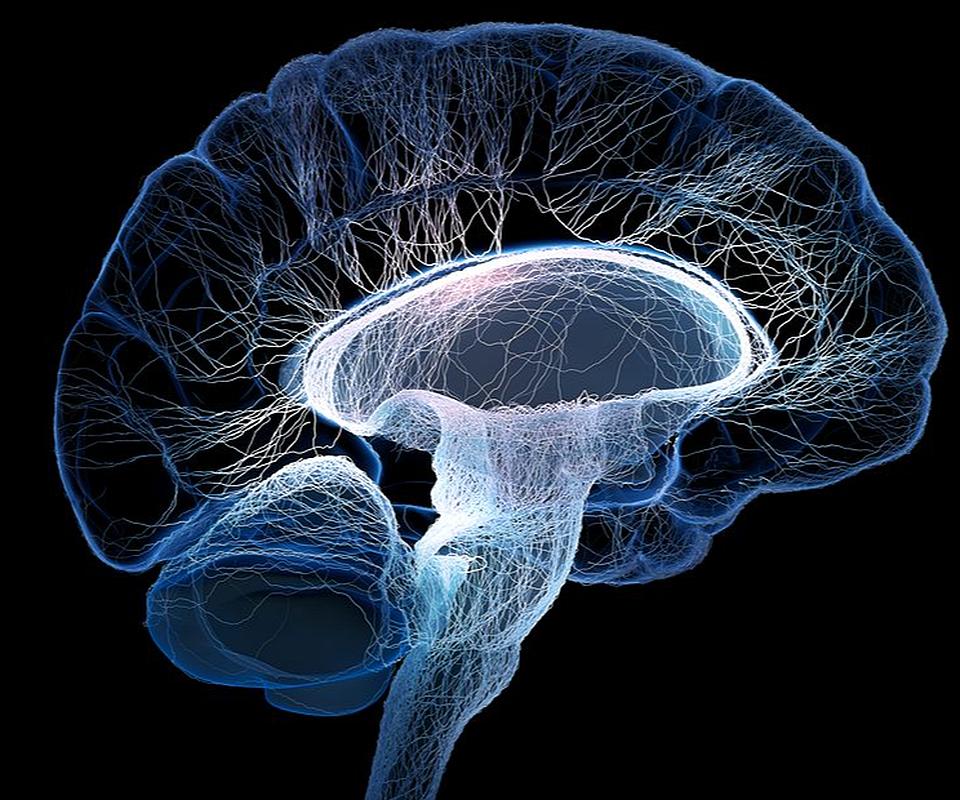If you or someone you know suffers from regular, extreme fatigue, it may not be due to normal life busyness, a late night here or there, or a busy work schedule — it could represent Myalgic Encephalomyelitis/Chronic Fatigue Syndrome (ME/CFS). This condition can significantly affect your life including your ability to work, go to school, interact with friends or family, or engage in your favorite activities.
While ME/CFS can be difficult to diagnose and treat, there are holistic interventions that can significantly improve your overall quality of life.
What is Myalgic Encephalomyelitis/Chronic Fatigue Syndrome?
Chronic fatigue, also known as myalgic encephalomyelitis/chronic fatigue syndrome (ME/CFS) or systemic exertion intolerance disease is a serious, long-term, debilitating chronic illness that affects many different body systems. The CDC states that up to 2.5 million Americans suffer from ME/CFS, however, up to 90 percent of people with ME/CFS have not been diagnosed or are often misdiagnosed with health conditions like fibromyalgia. Those that are diagnosed usually receive inappropriate treatment (1). Diagnostic criteria is limited and clinical guidance tends to be scarce and, at times, harmful.
Those with ME/CFS frequently struggle with typical activities of daily living and are at times on bed rest. ME/CFS can be extremely serious, with marked decompensation, dysfunction, disability, and health impairment across many body systems. People with chronic fatigue syndrome frequently cannot function normally in many spheres of their life, cannot stand or walk for more than a few minutes at a time, cannot tolerate bright lights or sounds, and have significant autonomic nervous system impairment with dizziness, lightheadedness, heart racing (orthostatic intolerance or postural orthostatic tachycardia syndrome). Additionally, ME/CFS can affect a person's ability to work, decrease mental health, and create significant lifestyle restrictions.
Risk Factors for ME/CFS
Although anyone can develop ME/CFS, it is most commonly found in adolescents and middle-aged adults and is more common in women and black and LatinX people. Those with a medical history of multiple chronic infections are also at an increased risk for chronic fatigue syndrome.
What are the symptoms of ME/CFS?
The most common symptom of ME/CFS is severe fatigue. This typically presents a significantly lower ability to do normal daily activities that were usually well tolerated prior to illness. This drop in activity level and severe fatigue can last more than 6 months after onset. ME/CFS can also cause post-exertional malaise (PEM), which is a worsening of CFS symptoms after physical activity or mental activity. This can include simple physical activities like taking a shower or less demanding activities like watching television. Often, overexertion can lead to a relapse of CFS symptoms. Sleep problems are the third most common symptom experienced. This includes unrefreshing sleep, difficulty falling asleep, and difficulty staying asleep.
Other common symptoms of ME/CFS include:
- Orthostatic intolerance
- Gastrointestinal issues
- Muscle pain and aches
- Joint pain
- Sore throat
- Tender lymph nodes
- Weakened immune system
- Neurological challenges
Diagnosing ME/CFS
ME/CFS is difficult to diagnose because symptoms are unpredictable, often including flares and lapses over time that can be triggered by known or unknown factors. There is no gold standard test or diagnostic criteria for ME/CFS. Because of this, it is often mistaken for other medical conditions with similar symptoms including fibromyalgia, chronic mononucleosis, Lyme disease, sleep problems, multiple sclerosis, and mental health conditions, to name a few. In general, ME/CFS can be seen as a diagnosis of exclusion once other possible causes have been comprehensively ruled out. On the other hand, ME/CFS can sometimes have other underlying causes at its root, and some of these can be difficult to diagnose or controversial (Lyme disease and tickborne illnesses are key examples), so it is important to work with knowledgeable healthcare providers to make sure all factors are considered.
Treatment Considerations for ME/CFS
There is no known cure for ME/CFS. Treatment is multifactorial, largely focused on trying to treat underlying causes, stabilize body systems, and improve resilience, as well as trying to identify triggers that can be mitigated. Comprehensive testing is necessary to attempt to identify possible causes such as:
- Viral infection or reactivation of a viral infection including Epstein-Barr virus or human herpesvirus
- Infectious diseases like SARS-COV-2/COVID-19
- Mast cell activation syndrome (MCAS)
- Tickborne infections including Lyme disease (Borrelia burgdorferi) and coinfections such as Bartonella and Babesia
A comprehensive evaluation is needed to look at microbiome balance, and rule out gastrointestinal bacterial infections or parasites. Additionally, a functional medicine healthcare provider will address hormone levels, specifically any thyroid and adrenal abnormalities. Nutrient testing can also be helpful to assess the status of vitamins and minerals including B vitamins, vitamin D, zinc, and copper. Correcting systemic imbalances can help the body regain optimal function. Additionally, many healthcare providers will work to support mitochondrial function (the cellular batteries that produce ATP), through testing, supplementation, and nutrition support.
The FDA is currently working on the development of drug products for the treatment of ME/CFS, however, clinical trials are still needed (3).
How to Manage ME/CFS
People suffering from ME/CFS should consider working with a functional medicine clinician who can simultaneously work on several different pathways. The best chance of recovery comes from identifying triggers and treating the underlying root cause. To manage symptoms of chronic fatigue syndrome, specific strategies have been helpful for many suffering including:
- Cardiovascular and autonomic nervous system support with medications like beta-blockers, midodrine, or Florinef. Staying hydrated, using compression socks, or herbal remedies like licorice can also help maintain fluid status, supporting the autonomic nervous system.
- Be careful not to overexert yourself. Being mindful of exertion can help prevent a “push and crash” cycle and post-exertional malaise. This includes physical activity, exertion at work, and for some, even basic mental activities like reading or looking at a screen.
- Balance the nervous and limbic systems. Although ME/CFS is not caused by a psychological mechanism, the body and brain can get into a trauma loop, making it challenging for the brain to differentiate between what is a threat and what is not. Retraining these responses and building new neural pathways can be an important part of re-establishing balanced emotional and mental health which many of us enjoy and take for granted. This can include neuroplasticity/brain retraining techniques like DNRS, the Gupta Method, Alex Howard’s Reset, EFT, meditation, breathwork, and more.
The methods listed above can help support you as you try to manage day-to-day symptoms, however, working with a comprehensive functional medicine clinician is critical to properly diagnosing and managing ME/CFS. Peer support groups for those with chronic fatigue syndrome may also be helpful.
Please remember that it is vital that you follow-up with a healthcare provider and care team who believes you, is open-minded, and is willing to work collaboratively. Many patients with ME/CFS and other complex, poorly understood, invisible illnesses experience medical trauma and gaslighting when they are told some variation of “your tests are normal, there is nothing wrong with you.” At CCFM we believe that with time, research, and innovation, we will be able to find better diagnostic and treatment options. And while we are all waiting for those to be available, we will do our best to support you and all those who are suffering from chronic fatigue syndrome and other invisible illnesses.
References:
- Centers for Disease Control and Prevention. (2021, January 27). What is me/CFS? Centers for Disease Control and Prevention. Retrieved August 22, 2022, from https://www.cdc.gov/me-cfs/about/index.html#:~:text=As%20noted%20in%20the%20IOM,CFS%20have%20not%20been%20diagnosed.
- Bateman, L., Bested, A. C., Bonilla, H. F., Chheda, B. V., Chu, L., Curtin, J. M., Dempsey, T. T., Dimmock, M. E., Dowell, T. G., Felsenstein, D., Kaufman, D. L., Klimas, N. G., Komaroff, A. L., Lapp, C. W., Levine, S. M., Montoya, J. G., Natelson, B. H., Peterson, D. L., Podell, R. N., … Yellman, B. P. (2021, August 25). Myalgic encephalomyelitis/chronic fatigue syndrome: Essentials of diagnosis and management. Mayo Clinic Proceedings. Retrieved August 22, 2022, from https://www.mayoclinicproceedings.org/article/S0025-6196(21)00513-9/fulltext#:~:text=Consequently%2C%20up%20to%2091%25%20of%20affected%20people%20are%20undiagnosed%20or,other%20conditions%2C%20such%20as%20depression.&text=Institute%20of%20Medicine-,Beyond%20Myalgic%20Encephalomyelitis%2FChronic%20Fatigue%20Syndrome%3A%20Redefining%20an%20Illness.,The%20National%20Academies%20Press%3B%202015.
- Center for Drug Evaluation and Research. “Chronic Fatigue Syndrome/MYALGIC ENCEPHALOMYELITIS: Developing Drug.” U.S. Food and Drug Administration, FDA, https://www.fda.gov/regulatory-information/search-fda-guidance-documents/chronic-fatigue-syndromemyalgic-encephalomyelitis-developing-drug-products-treatment<.






